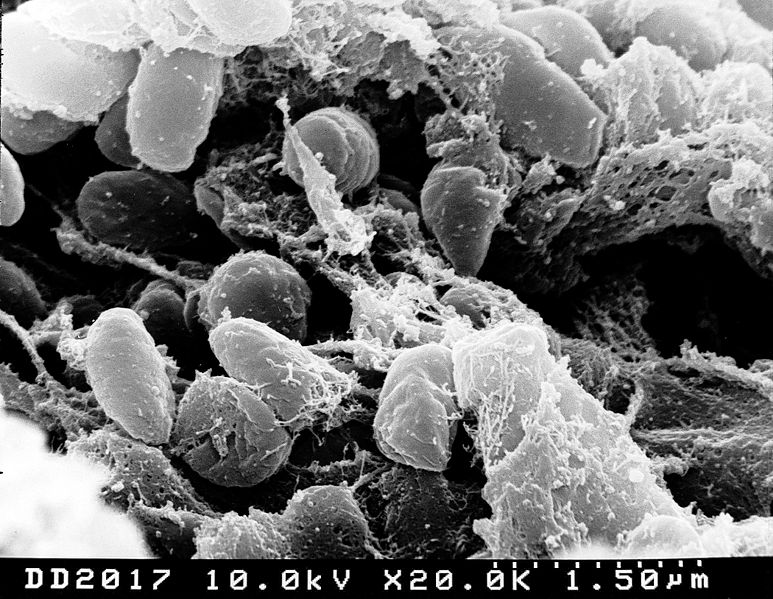Nanoparticles used routinely in wastewater cleanups can encourage bacteria to breed superbugs, new research has shown. The findings could have major implications for the way in which sewage should be processed in order to prevent the appearance of bacteria equipped to resist every known antibiotic.
 Writing in PNAS, Institute of Health and Environmental Medicine scientist Zhigang Qiu and his colleagues measured the amount of gene-swapping taking place between bacteria incubated with a range of common industrially-employed nano-particles. Alumina (Al2O3), titanium dioxide (TiO2), silicon dioxide (SiO2) and iron oxide (Fe2O3) were tested. All of them promoted the exchange amongst the bacteria of a test DNA plasmid called RP4, with alumina particles producing the largest effect - up to a 200-fold increase in the rate of successful DNA exchange compared with bugs grown without nanoparticles.
Writing in PNAS, Institute of Health and Environmental Medicine scientist Zhigang Qiu and his colleagues measured the amount of gene-swapping taking place between bacteria incubated with a range of common industrially-employed nano-particles. Alumina (Al2O3), titanium dioxide (TiO2), silicon dioxide (SiO2) and iron oxide (Fe2O3) were tested. All of them promoted the exchange amongst the bacteria of a test DNA plasmid called RP4, with alumina particles producing the largest effect - up to a 200-fold increase in the rate of successful DNA exchange compared with bugs grown without nanoparticles.
The gene transfers were also not limited to bugs of the same species. Mixtures of E. coli and Salmonella bacteria also increased their rates of gene swapping in the presence of the nanoparticles. The effect appears to be the result of biochemical stress. Electron microscope images show that the nanoparticles damage the bacterial cells, activating a range of protective responses, including a preponderance to swap sequences of genetic material.
Worryingly, the concentrations of nanoparticles needed to achieve this (about 2 million per millilitre) are much lower than those presently used industrially to scrub heavy metals and other contaminants from waste water. So present processing practices could be encouraging bacteria that harbour antibiotic-resistance genes to disseminate their dangerous DNA cargo.
- Previous Messages from Mercury
- Next Still no clear answers on PSA testing










Comments
Add a comment